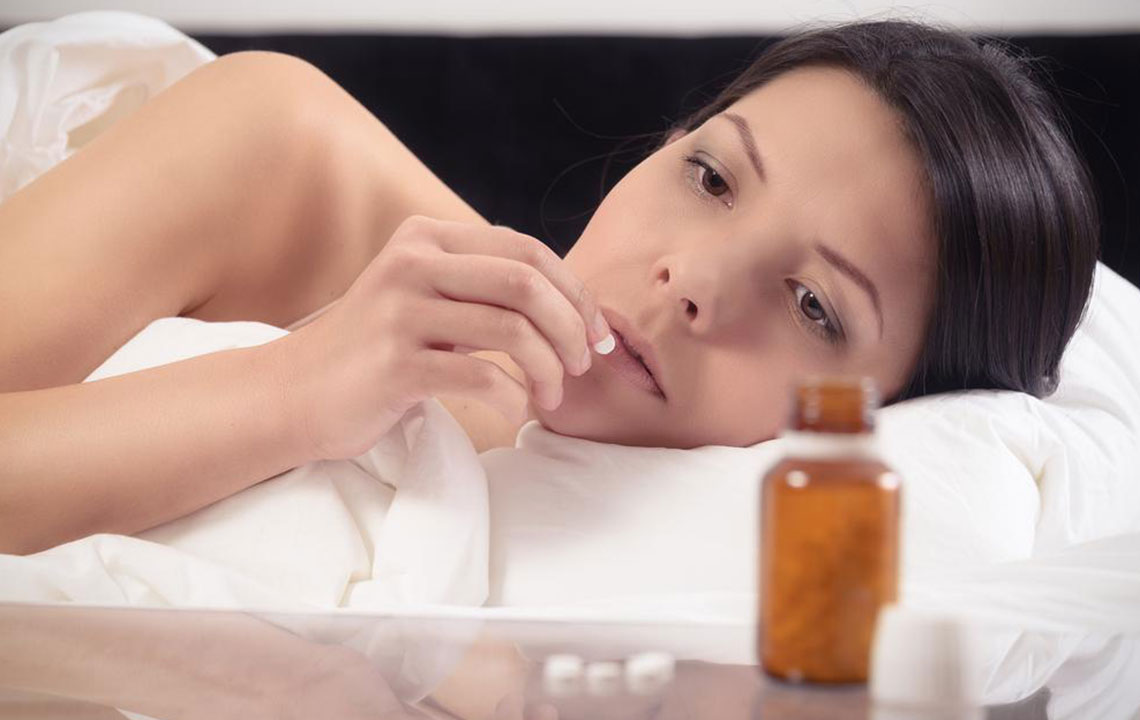Insomnia Medications That Help You Sleep Better

Insomnia is a complicated condition that leads to people not getting a proper sleep. It is also known as sleeplessness. People find it difficult to stay asleep if they have insomnia. Anyone suffering from insomnia never gets a satisfied sleep and therefore feel fatigued, face difficulty in concentrating, and lack energy. Their performance also diminishes, and they suffer from stress and mood swings.
Types of Insomnia
There are mainly two types of insomnia conditions – Acute Insomnia which is not a serious condition and is usually influenced by life circumstances such as excitement or shock. This type of insomnia is temporary and flees away with time. The other type of insomnia is chronic insomnia which is rather more difficult to handle as it occurs for more than a month. Chronic insomnia tags along with many causes such as environmental change, indefinite sleeping habits, heavy workload and it could even be a result of side effects of certain medications. There are a number of medications available for treating insomnia. The treatment may vary from person to person depending upon what kind of insomnia they are suffering from.
Insomnia Medications
The following drugs help in treating insomnia to a large extent. However, these drugs should be consumed in combination with proper sleeping habits.
• Zolpidem : Zolpidem or Ambien or Intermezzo are the medicines that help in getting a sound sleep. However, this insomnia medication may not suit some people as they woke them up at night. This drug in most cases helps you sleep properly for long hours. An extended version of Zolpidem is available called Ambien CR. Zolpidem is also approved by FDA in oral spray form called Zolpimist which can be used for treating acute insomnia.
• Eszopiclone : Eszopiclone or Lunesta helps a patient suffering from insomnia fall asleep in no time. This insomnia medication has been approved by FDA. One should prevent taking Lunesta if they are getting sleep from 7 to 8 hours as it may lead to dizziness.
• Ramelteon : Ramelteon or Rozerem is another abnormal sleep treatment medicine that works in an entirely different manner. Ramelteon works effectively by emphasizing on the sleep-wake cycle and not by targeting the central nervous system. This drug can be used on a long-term basis and as it has shown no signs of dependence or addiction.
• Anti-Depressants : Anti-depressant drugs such as Trazodone, Agomelatine, and Amitriptyline are best known effective drugs for treating anxiety and stress. Mirtazapine is known to decrease the time one takes to fall asleep. Thus it helps in improving sleep efficiency by increasing sleeping hours. Agomelatine on the other hand also improves sleep quality and does not even cause daytime sleepiness.
• Doxepin : Doxepin or Silenor is another drug used for treating patients suffering from insomnia. The drug helps in maintaining sleep by jamming histamine receptors. It is only recommended for people getting less than seven hours of sleep. The dosage depends on patient’s age, health conditions, and the way their body responds to the medicine.
• Over-The-Counter Sleep Aids : These insomnia medications are the sleeping pills which are antihistamines like Doxylamine and Diphenhydramine. They are known to be a good medication option but may lead to drowsiness. These drugs can be availed without a prescription but must be consumed in limits and more preferably on the recommendation of your doctor. The drawback of the medications is that the effectiveness of the drug for treating sleeping disorders may diminish over time and it also leads to a dry mouth.
• Zaleplon : Zaleplon or Sonata is a pill that is prescribed for treating insomnia, and it is a newly introduced medicine. Sonata is known to be active in the body for the smallest amount of time. In case you wake up in the middle of the night and need to sleep desperately, you may take this medicine without even feeling drowsy the next day. But even after consuming the medicine, if you wake up again at night; this medicine is not for you.
• Benzodiazepines : These pills are known for a quite long time now and include Triazolam, Alprazolam or Temazepam. These medicines stay in the body for a longer duration and are most effective for conditions such as sleepwalking or night terrors. The only problem with the drugs is that you may feel sleepy during daytime and you may also get addicted to it.
Side Effects
All the insomnia medications listed above work in their own way to treat insomnia, but may also include some side effects. Some of which are mentioned below:
• Sleepwalking
• Drowsiness
• Impaired driving the day after taking the pill
• Addiction
• A headache
• Allergic reactions
• Sleep driving
• Sleep eating
• Memory retention problems
• Decreased performance
• Gastrointestinal problems like queasiness or diarrhea
Every insomnia medication that you take in moderation is going to affect you positively. Try not to get addicted to these drugs as they may have certain side effects. It is advised to visit a doctor if you still can’t seem to get a good night’s sleep.


